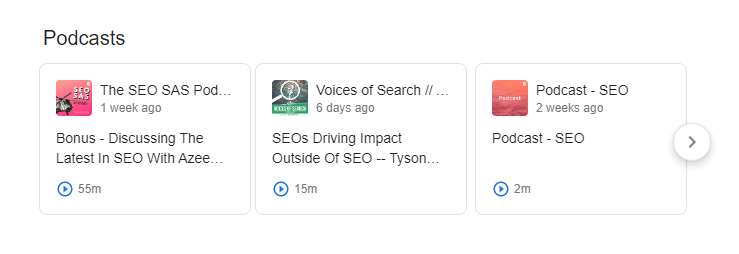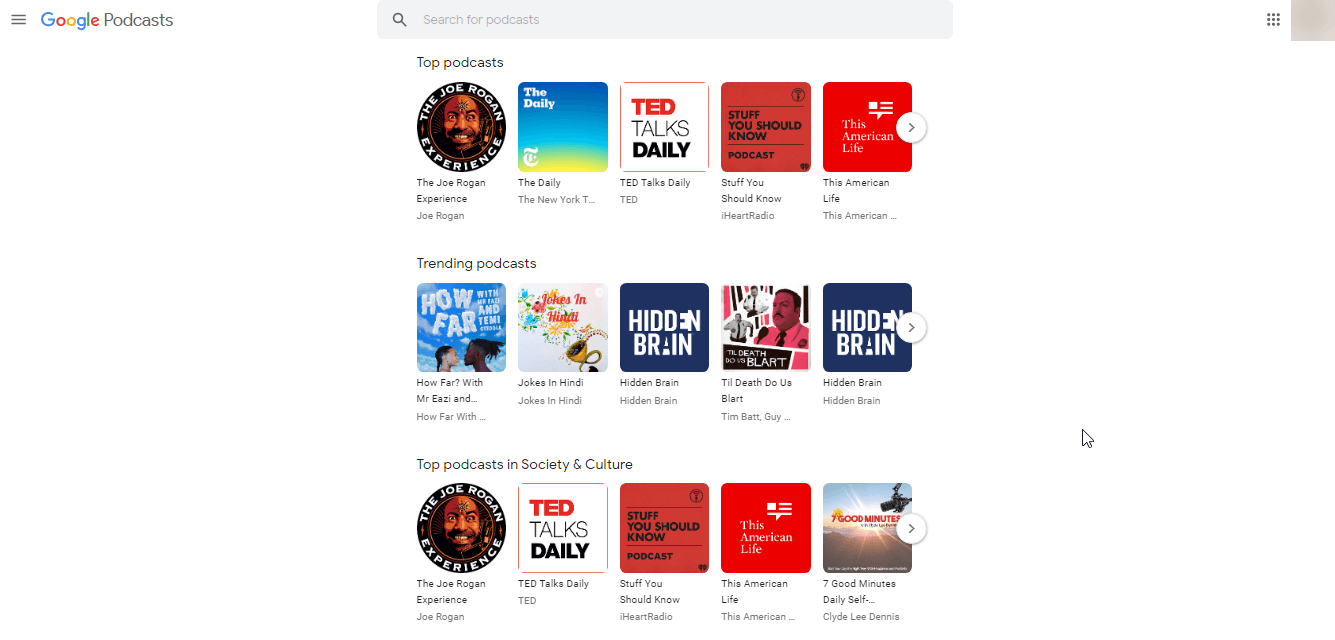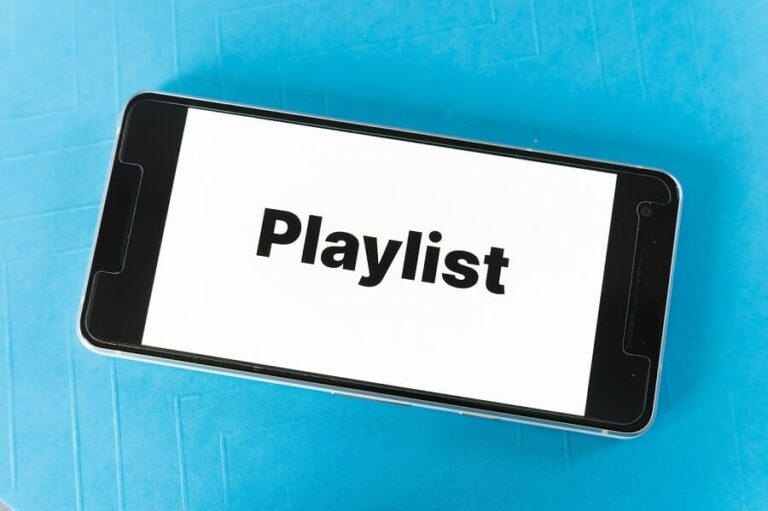These days, podcasting has become an integral part of content marketing, and many entrepreneurs are using it to grow their online presence. If you are interested in using this channel to boost your presence, you should start using it with the right podcast SEO strategies.
The popularity of podcasts is growing, and according to this published data:
- 75% of Americans are aware of podcasting
- 55% of Americans have listened to podcasts
- 37.5% podcaster growth in the last three years
On many occasions, Google has clarified that they can understand audio and video. We regularly see YouTube videos in a Google search, and soon, podcasts will start showing in the search engine result pages.
Nowadays, many bloggers have started using podcasting.
Some of them have dedicated podcasting content, and a few others simply convert their blog posts to audio with the help of a plugin.
Google shows YouTube videos on the search page, but this is not so true for podcasts. I believe this will change in the future.
An example of a podcast in a Google search looks like:

I noticed that Google shows podcast episodes published in their podcast directory.
Podcasts in Google search are in the nascent phase. To benefit from it, you need to follow the right podcast SEO practices from day one.
Podcast SEO
Here I will give you a few podcast SEO tips that you can follow to increase your audience.
#1. Have Dedicated Podcast Content
An increasing number of bloggers use a WordPress plugin to convert their blog posts into podcasts. The plugin adds a basic player with a play and a pause button on top of the post. The player reads the blog post with a monotonous robotic voice.

I have listened to many audio versions of blog posts, and the experience was unpleasant. Blog posts and podcasts have different formats. The podcast must be in conversation mode. The robotic voice does not provide a pleasant experience, and you should avoid using it.
If you are interested in podcasting, go for a dedicated podcasting hosting provider. Use your voice to record the content, and use embeddable podcast players to embed podcasts on your site.

These podcast players are customizable, and you can use the call to action button on your podcast player and add advertisements to your podcast.
I have used a few podcast hosting platforms such as Buzzsprout and Podbean. Using them is easy, and they provide everything you need to have an SEO optimized podcast and many monetization opportunities.
#2. Do the Keyword Research
Keyword research helps us know if the content is in demand. If no one is searching for your keyword, creating content is a waste of effort.
You must do keyword research for your topic. This is the most critical podcast strategy.
I use LongTailPro to find a long-tail keyword:

Long-tail keywords are three to four-phase keywords, with low to medium search volume and low competition.
Creating podcasts on these long-tail keywords can help you rank high in a Google search with minimal effort. For example, ranking for the “Start a Blog” keyword is much more challenging than ranking for “Start a WordPress Blog on Bluehost Hosting.”LongTailPro is a fine keyword research tool to find low competitive and high profitable keywords. You can use this tool to find a keyword for your next podcast.
#3. Write Catchy Titles for Your Podcast Episodes
Your podcast title must be unique, memorable, and include the keyword.
Your title is your first impression on your audience, and only 20% of people who read your title click on the link. Ensure that the podcast episode title is meaningful and gives hints about what a listener will encounter.
More clicks will increase the click-through rate (CTR), which will further improve your podcast episode’s ranking
.It is an indirect SEO that affects your ranking.
#4. Add Metadata
While creating podcasts, the podcast hosting platforms ask for metadata. This metadata describes your podcast. Take time to craft your metadata and include your keyword.
Metadata is required to submit podcasts to iTunes podcast directories, and listeners will see this description when they see your listing. This is the second most important factor after the title.
The podcast hosting platform will also ask you to add tags and categories to your podcast. This helps the podcast directory to classify your podcast and show it to relevant audiences.
#5. Use Your Voice
Your audience wants to listen and connect with you. You must use your voice for your podcast. Creating and editing podcasts is much easier than creating a video.
Ensure the sound quality is loud and clear. It will ensure that search engines understand and index your podcast with no difficulty.
Use a high-quality microphone and software to enhance your voice and reduce noise. It is a good user experience, and Google will reward you with a high ranking of your podcast.
#6. Focus on the Quality
All your effort will be in vain if your podcast does not provide value to your audience. Bringing traffic to your podcast will offer you no benefit, and on the contrary, it will hurt your brand.
Your podcast must be of top quality.
Also, ensure that the audio quality is good and free from noise and the voice is energetic.
#7. Include Podcast Transcript
These days, podcast hosting software provides a feature to download your podcast transcript with one click.
Many podcast hosts provide it for free, and a few others charge a nominal fee.
Many podcasters post transcripts as-is.Don’t do this.
Break larger paragraphs into smaller ones and reformat it to increase the readability. You can add headings, subheadings, and lists to increase the interactivity.
Along with your transcript, add your podcast summary on the podcast landing page so your podcast listeners can understand what they are going to listen to.
You must focus on text-based content on your podcast page to rank high on Google as text content still rules here.
#8. Submit to Podcast Directories
Podcast hosting service providers can submit your podcast to podcast directories, but I suggest you don’t let them do this. Submit your podcast manually. If your host submits your podcast, they will own your podcasts, and if you change your podcast hosting provider, you may lose rankings and reviews.
But if you submit your podcasts using your account, you will own them forever.
Submit your podcasts to as many directories as possible to increase your presence.
The most important directory is Google Podcasts, as they control over 80% of the search and show podcast results from their directory.

#9. Create a Dedicated Landing Page
Create a dedicated landing page for each of your podcast episodes. Many podcasters publish podcasts on their homepage and with a click, you can listen to it. They don’t have landing pages for podcast episodes.
Without a dedicated landing page, you cannot optimize your podcast for SEO.
These days, all podcast hosting platforms provide a dedicated landing page builder to create SEO optimized podcast landing pages. They even offer templates for you to get started.
You can describe your podcast episode on this landing page, add the transcript, images, call to action, etc.
Summary
Podcasting is a new channel of content marketing, and many marketers are using it to grow their presence. Podcast SEO is vital for your podcast as it brings free high-quality organic traffic to your podcast; it increases conversion, so your business will grow.
If you want to grow your brand, start a podcast now as the competition is less, and with the right podcast SEO strategy, you can quickly rank high on search pages.
I hope this blog post was useful to you, and now you can publish SEO-optimized podcasts for your online marketing.
What podcast SEO tactics do you find most useful for your audience? Please share them in the comments section.




